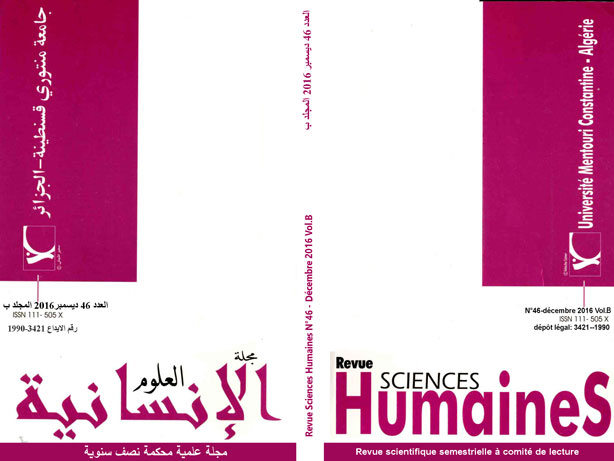Apology Strategies of Algerian University Students of English
الكلمات المفتاحية:
Apology، speech، act، EFL، learners، Discourse، Completion، Task، DCT، apology strategiesالملخص
The current study aims at investigating the apology strategies employed by Algerian university students of English relative to the factors of social power, distance and severity of the offense. The data for analysis in this study were collected through a Discourse Completion Questionnaire and interviews. The findings revealed that the respondents preferred giving direct expressions of apology and taking on responsibility more than the other strategies. The informants also resorted to new strategies namely, a call to hold anger, determinism and arrogance. The results further showed that the severity of the offense was the predominant factor that determined the selection and intensity of apology strategies. All the interviewees agreed that apology speech act maintains harmony among people.
التنزيلات
المراجع
Austin, J. L. (1962). How to Do Things with Words. Oxford: Oxford University Press.
Bergman, M. L., & Kasper, G. (1993). Perception and Performance in native and nonnative apology. In G. Kasper & S. Blum-Kulka (Eds.), Inter-language Pragmatics (pp. 82-107). Oxford: Oxford University Press.
Blum-kulka, S., House, J., & Kasper, G. (1989). Cross-cultural pragmatics: Requests and apologies. Norwood, NJ: Ablex.
Bonikawska, M. (1988). The Choice of Opting Out. Applied Linguistics, 9, 169-181.
Cohen, A. D., & Olshtain, E. (1981). Developing a measure of socio-cultural competence: The case of apology. Language Learning, 31 (1), 113-134.
Edmundson, W. J. ( 1981). On saying you ̍ re sorry. In F. Coulmas (Ed.), Conversational Routine: Explorations in Standardized Communication Situations and Pre-patterned Speech (pp.273-288). The Hague: Mouton de Gruyter.
Fraser, B. , & Nolen, W. (1981). The association of deference with linguistic form. International Journal of the Sociology of the Language, 27, 93-109.
Goffman, E. (1971). Relations in Public: Micro-studies of the Public Order. Harmondsworth: Penguin.
Holmes, J. (1989). Sex differences and apologies: One aspect of communicative competence. Applied Linguistics, 10 (2), 194-213.
Holmes, J. (1990). Apologies in New Zealand English. Language in Society. 19 (2), 155-199.
House, J. (1988). Oh excuse me please: Apologizing in a foreign language. In B. Kettemann, P. Bierbaumer, A. Fill, & A. Karpf (Eds.), Englisch als Zweitsprasche (pp.303-327). Tuebingen: Narr.
Hussein, R. F. , & Hammouri, M. T. (1998). Strategies of apology in Jordanian Arabic and American English. Grazer Linguistische Stusien, 49, 37-51.
Kasper, G. (2001). Classroom research on inter-language pragmatics. In K. R. Rose, & G. Kasper (Eds.), Pragmatics in Language Teaching (pp. 33-60). Cambridge: Cambridge University Press.
Leech, G. N. (1983). Principles of Pragmatics. New York: Longman.
Olshtain, E., & Cohen, A. D. (1983). Apology: A speech act set. In N. Wolfson & E. Judd (Eds.), Sociolinguistics and language acquisition (pp. 18-35). Rowley, MA: Newbury House.
Searle, J. R. (1969). Speech Acts: An Essay in the Philosophy of Language. Cambridge: Cambridge University Press.
Trosborg, A. (1987). Apology strategies in natives ∕ non-natives. Journal of Pragmatics, 11, 147-167.
Trosborg, A. (1995). Inter-language pragmatics. Berlin: Mouton de Gruyter.












